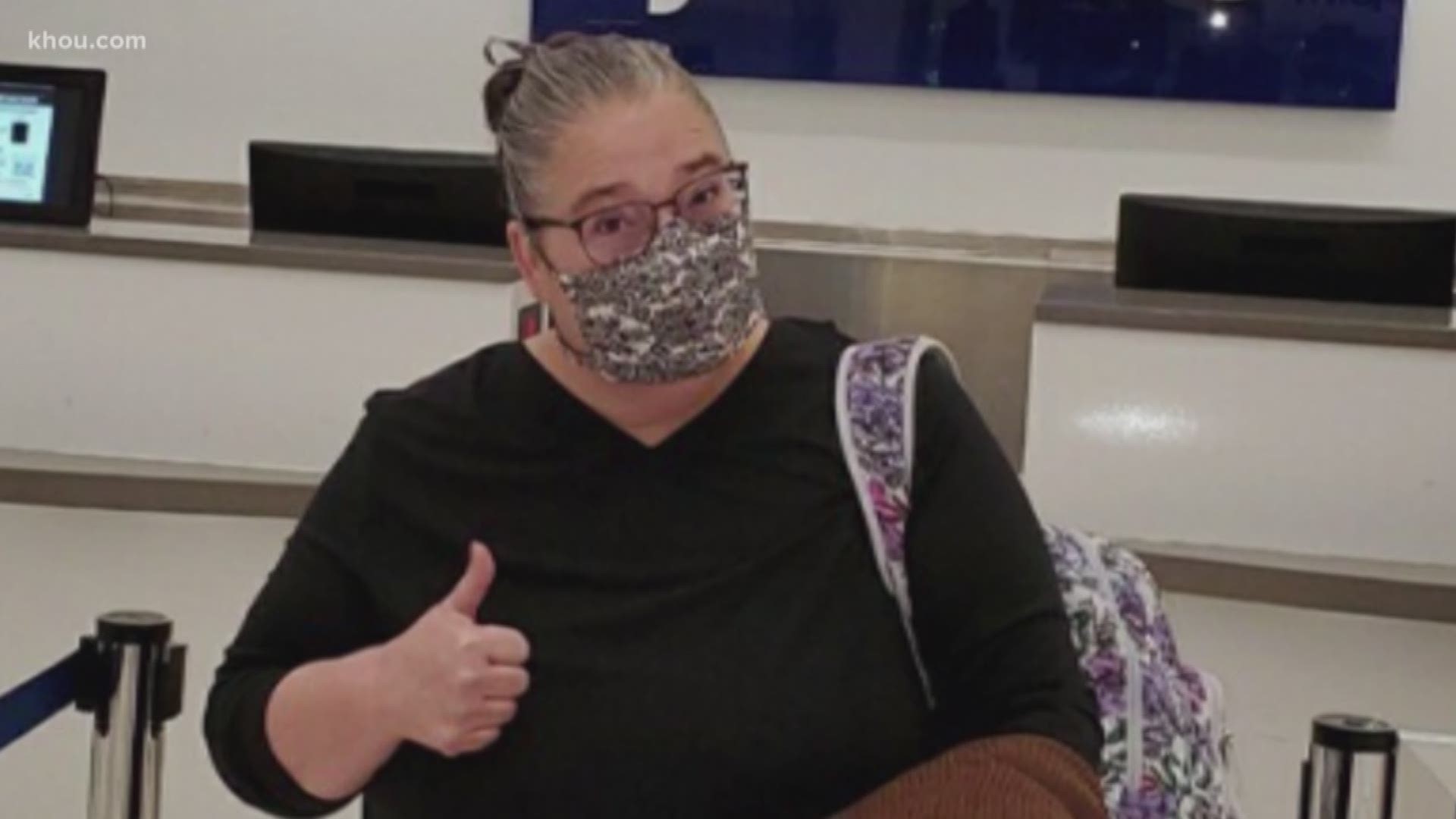SUGAR LAND, Texas — Healthcare workers across the country are answering the call to help. One respiratory therapist from Sugar Land is landing in New York City to do just that.
“This is the first time in my life I’ve had the opportunity to be able to go," said Pamela Sturgill, who has been working as an R.T. for 22 years. “I’ve always been one that’s wanted to go and help out areas that really needed help," she said. "This is the first time in my life I’ve had the opportunity to be able to go."
She’ll be gone for 13 weeks and assigned to Elmhurst Hospital in Queens.
“A respiratory therapist is someone who runs the ventilators, and if someone needs to be intubated and put on a machine that breathes for them, we are the ones who run that machine," she said.
Sturgill's worked through hurricanes, but never anything like this.
“It’s described as a war zone," she said. “That’s part of what makes me want to go is my fellow R.T.’s are dying and exhausted and they need help."
She told KHOU 11 to prepare, she prays often and she’s got a lot of support from her family back home and even strangers now following her Facebook page where she posts updates.
“There’s worry and I wouldn’t lie if I didn’t say I wasn’t scared," she said. “But I think being scared a little bit will keep me safe."
Safe to do a job she says is a calling.
“I really feel like I have God’s armor on. I don’t know what his plan for me there is, but I just pray every day I have the healing hands to help."
Sturgill is asking kids to send her pictures they draw. She plans to put them in the hospital break room to bring a little light to a dark place.
You can send her mail to this address:
Pamela Sturgill
3239 46th Street
Astoria, NY 11103
Coronavirus symptoms
The symptoms of coronavirus can be similar to the flu or a bad cold. Symptoms include a fever, cough and shortness of breath, according to the Centers for Disease Control. Some patients also have nausea, body aches, headaches and stomach issues. Losing your sense of taste and/or smell can also be an early warning sign.
Most healthy people will have mild symptoms. A study of more than 72,000 patients by the Centers for Disease Control in China showed 80 percent of the cases there were mild.
But infections can cause pneumonia, severe acute respiratory syndrome, kidney failure and even death, according to the World Health Organization. Older people with underlying health conditions are most at risk for becoming seriously ill. However, U.S. experts are seeing a significant number of younger people being hospitalized, including some in ICU.
The CDC believes symptoms may appear anywhere from two to 14 days after being exposed.
Human coronaviruses are usually spread through...
- The air by coughing or sneezing
- Close personal contact, such as touching or shaking hands
- Touching an object or surface with the virus on it, then touching your mouth, nose or eyes before washing your hands.
Help stop the spread of coronavirus
- Stay home when you are sick.
- Eat and sleep separately from your family members
- Use different utensils and dishes
- Cover your cough or sneeze with your arm, not your hand.
- If you use a tissue, throw it in the trash.
- Follow social distancing
Lower your risk
- Wash your hands often with soap and water for at least 20 seconds. If soap and water are not available, use an alcohol-based hand sanitizer.
- Avoid touching your eyes, nose, and mouth with unwashed hands.
- Avoid close contact with people who are sick.
- Clean and disinfect frequently touched objects and surfaces.
- If you are 60 or over and have an underlying health condition such as cardiovascular disease, diabetes or respiratory illnesses like asthma or COPD, the World Health Organization advises you to try to avoid crowds or places where you might interact with people who are sick.
Get complete coverage of the coronavirus by texting 'FACTS' to 713-526-1111.

